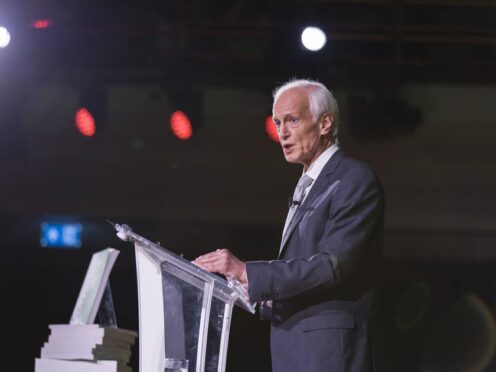
There is a “real worry” that that Infected Blood Inquiry report will be ignored, the chairwoman of Haemophilia Wales has said.
Lynne Kelly commended Sir Brian Langstaff’s report, saying there is a “feeling of closure”, although “nobody can bring back the people who have been lost”.
However, Ms Kelly said the “main concern” in Wales is how the Government will respond to the recommendations.
She went on: “I think the difficulty now is that Sir Brian’s recommendations may be overruled by government or ignored and that’s a real worry for people that we may still have to keep fighting after 40 years of fighting.
“So many people have lost their lives and yet we still have to continue, so I think people are reticent because they’ve seen what’s happened, the way that the history has been rewritten, that nothing has happened.
“So I feel that the apology is important, but the next stage now, compensation, that is bothering a lot of people, because obviously they feel that they want recognition.”
In his report, Sir Brian said Cardiff-based Professor Arthur Bloom, who was chairman of the haemophilia directors, “must bear some of the responsibility for the UK’s slowness in responding to the risks of Aids to people with haemophilia”.
Prof Bloom, who died many years ago, at the time said he was unaware of any proven case in the UK and there was no need to change their treatment, Sir Brian said, adding that “disastrously the Department of Health and Social Security was over-influenced by his advice, in particular his advice to continue importing commercial factor concentrates”.
Sir Brian said the Inquiry believes one of the sources for a 1983 Mail on Sunday story headlined “Hospitals using killer blood” was “Professor Bloom’s respected senior colleague, who was reluctant at the time to be identified as a whistleblower”.
Eluned Morgan, Welsh government cabinet secretary for health and social care, said: “This was the worst treatment scandal in the NHS.
“While it pre-dates devolution, as the Cabinet Secretary for Health and Social Care in Wales, I want to apologise to all those who were infected and have been affected by this terrible tragedy.”

Enjoy the convenience of having The Sunday Post delivered as a digital ePaper straight to your smartphone, tablet or computer.
Subscribe for only £5.49 a month and enjoy all the benefits of the printed paper as a digital replica.
Subscribe